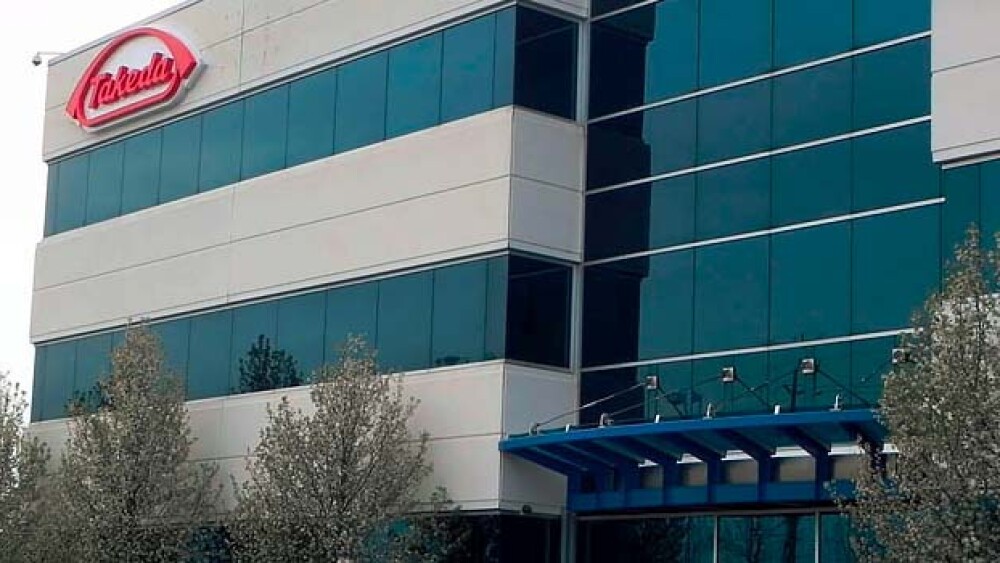Shire stock prices jumped up to 26 percent on rumors that Takeda Pharmaceuticals was considering a buyout.
Shire stock prices jumped up to 26 percent on rumors that Takeda Pharmaceuticals was considering a buyout.
Although Takeda announced its interest, Shire made an official announcement saying it had not had an “approach from Takeda.” And that, according to UK law, Takeda had to announce an official offer by 5:00 p.m. (London time) on April 25, 2018.
Takeda, for its part, indicated that the offer “is at a preliminary and exploratory stage and no approach has been made to the board of Shire.” However, it was interested in Shire because it would boost its cancer, gastrointestinal and neurology drug portfolio.
John Carroll, with Endpoints News, writes, “For Takeda CEO Christophe Weber, a Shire acquisition would drive a big expansion in the Boston area, where the Japanese company has been concentrating much of its R&D operations. R&D chief Andy Plump is based in the Boston area, and Shire has been readying new facilities for itself in Cambridge, near its main international headquarters in Lexington, Massachusetts. A buyout would also come after Takeda had shaken up its R&D structure globally, cutting back on staff while doing more deals with partners like Denali.”
Takeda stated that it “believes that a potential transaction with Shire presents an opportunity to advance Takeda’s stated Vision 2025, build on its current strong momentum, and create a truly global, value-based Japanese biopharmaceutical leader.”
In addition to the three core therapeutic areas, it stated the deal, if there was one, would “accelerate Takeda’s vision to be a leader in specialized medicines that are transformative to patients through the addition of Shire’s leading global rare disease franchise; further enhance Takeda’s robust R&D strategy, concentrating on key therapeutic areas; reinforce a strong and large-molecule focused late-stage pipeline within Takeda’s core therapeutic areas to complement Takeda’s own pipeline and discovery capabilities.”
Takeda also indicated that any possible deal would balance its geographic focus to align with U.S. market opportunities. Takeda, which was founded in 1781, employs 30,000 people and operates in more than 70 countries.
Shire, which has headquarters in Dublin, UK, has 24,000 employees, most of them in the U.S. The company was founded in the UK in 1986. In 2016, it acquired Baxalta for $32 billion from Baxter International after a six-month courtship filled with plenty of drama. At the time, Baxalta had recently spun off from Baxter. Baxalta declined the offer, but Shire went public with it in hopes of pressuring the Baxalta board and shareholders. It took several increasingly strong offers before Baxalta agreed to be acquired.
The Baxalta acquisition boosted Shire’s presence in orphan drugs and rare diseases. Portfolio products included Baxalta’s hematology drug, Adynovate, Antihemophilic Factor (Recombinant), PEGylated, to treat hemophilia A, and Hyqvia, a next-generation subcutaneous immunoglobulin (IG) product to treat patients with primary immunodeficiency. Shire’s top drug was Vyvanse, for attention deficit hyperactivity disorder (ADHA) and for moderate-to-severe Binge Eating Disorder.
Shire also has a strong presence in lysosomal storage diseases, gastrointestinal and endocrine, HAE, ophthalmics and oncology.
In 2014, AbbVie and Shire were planning to merge, but ended the deal after changes to the U.S. tax code made tax-inversion deals more difficult. A tax inversion is where a U.S.-based company incorporates its headquarters in a country with a lower corporate tax rate, often Dublin, Ireland, but continues its operations in the U.S. Obama-era policies made this more difficult. In theory, Trump-GOP tax cuts have made tax inversion less desirable.





